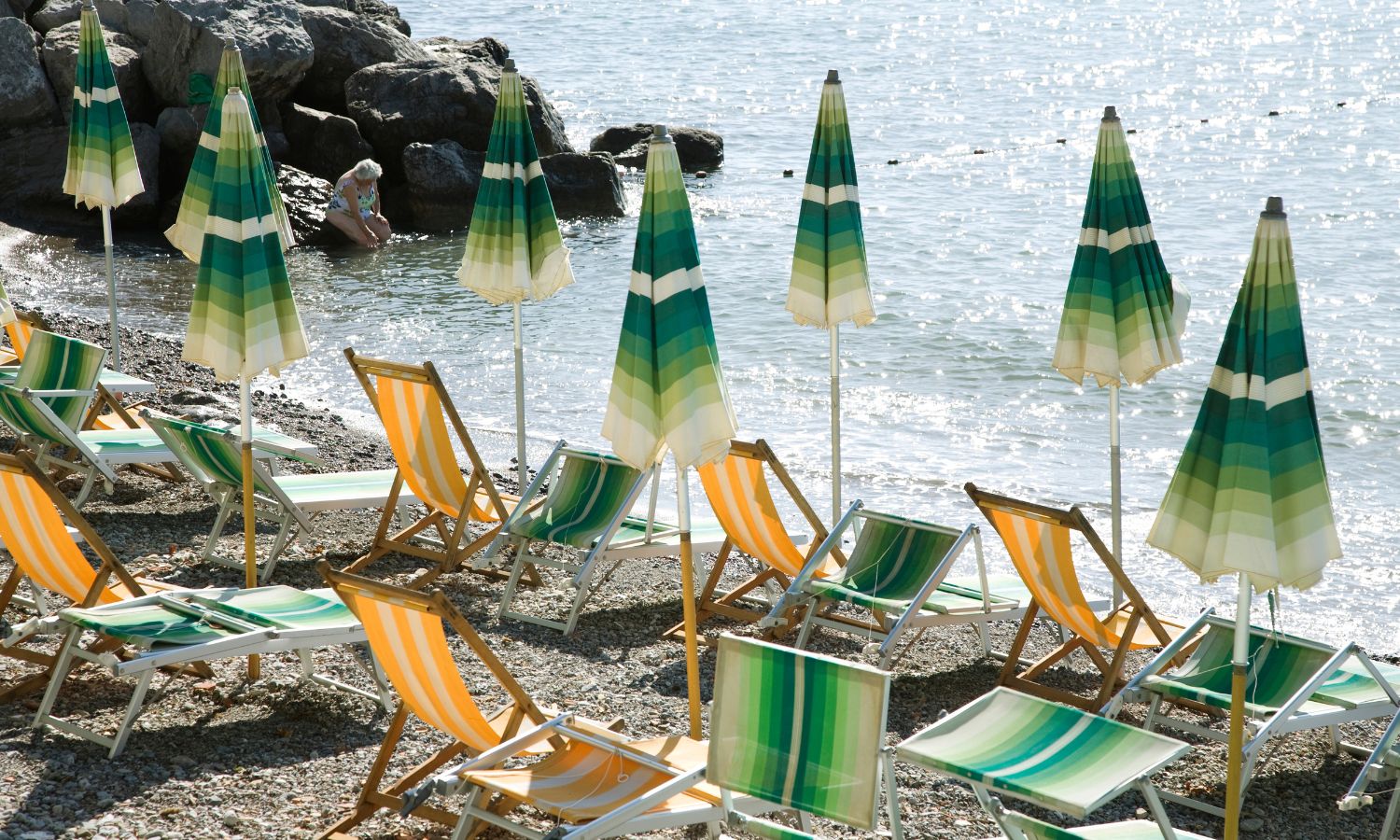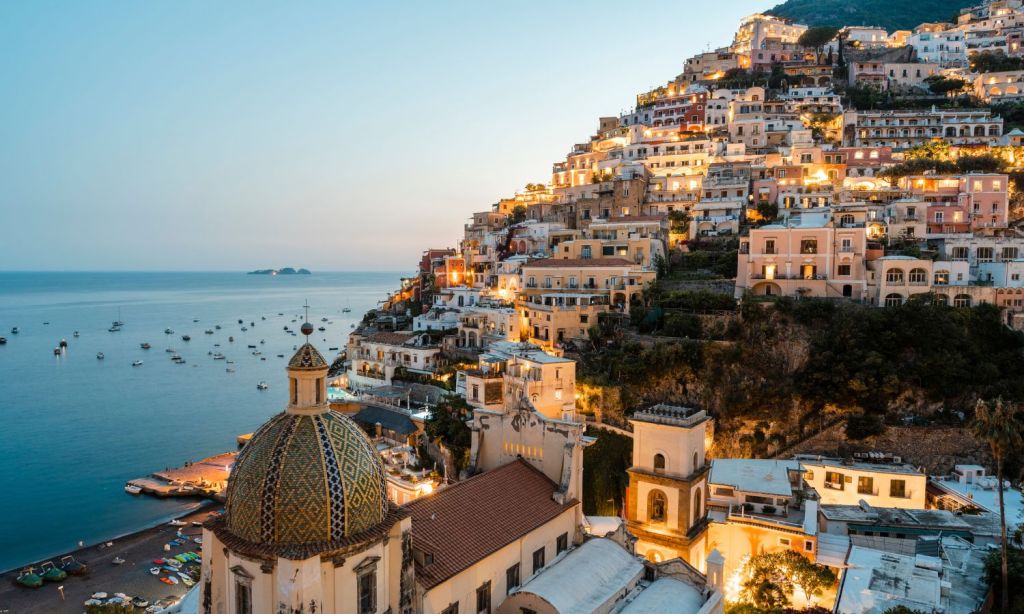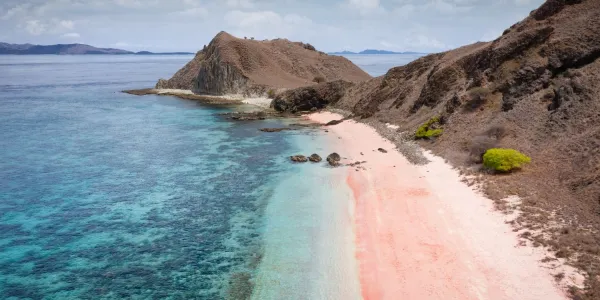The Amalfi Coast, or as the Italians call it, ‘Costiera amalfitana’, stretches roughly 50kms from the much-photographed village of Positano with its majolica-roofed churches and designer shopping, to the much-quieter town of Vietri sul Mare, best known for its ceramics.
Part of Italy’s Campania region, the coastline runs alongside the Tyrrhenian Sea and Gulf of Salerno and comprises 13 towns and villages, including one, confusingly, called Amalfi. Colourful villages with cobblestone and citrus trees spill along steep cliffs, striped umbrellas line black sand beaches, and yachts and speed boats dot azure waters.
If you’re planning a trip sometime in the near future, ahead, we’ve rounded up all the need-to-knows. From the best time of year to visit, to the best way to get around, and the sights you shouldn’t miss, this is your ultimate guide to visiting the Amalfi Coast.

How to Get to the Amalfi Coast
The easiest way to get to the Amalfi Coast from Australia is via Rome. Although you can fly into Naples, which is the closest airport, flights are cheaper if you go to Rome. From there, you can take a high-speed train to Salerno, which takes about 2.5 hours.
The Best Time to Visit Amalfi Coast
Summer is the peak of the tourism season on the Amalfi Coast, especially in August when many Italian families join the mix as they visit too. Though, thanks to sea breezes, the Amalfi Coast rarely reaches the scorching temperatures of cities like Rome – but with this amazing weather comes crowds and high-season pricing.
The two shoulder seasons on the Amalfi Coast are September to October and April to May. They also happen to be two great times to visit, since the days tend to be sunny and warm with fewer crowds. What’s more, hotels will offer you cheaper prices than in the summer.
It’s in the late autumn and winter when the Amalfi Coast shines for explorers. December and January are mellow months, and you can admire Positano, Praiano, Amalfi and Ravello, Furore, Atrani, Maiori and Minori at their most authentic. Plus, the locals will have plenty of time to share a leisurely chat.
How to Get Around on the Amalfi Coast
There are plenty of ways to get around the Amalfi Coast, though some of the most popular are using a rented car, taking a group tour, or booking a private driver. Fair warning, the roads are tight and the drivers are impulsive if you are thinking of booking your own vehicle. Most of the Amalfi Coast doesn’t have Uber. Also, the taxis along the coastline, particularly in Positano, aren’t cheap.
There are also public buses, run by the company Sita, that stop in each of the towns along the coastline. You can take ferries between some of the major towns, but they book out quickly so reserve your seat well in advance.
Note that with the summer crowds comes plenty of traffic, so be sure to give yourself enough time to get where you’re going.
What to See on the Amalfi Coast
Start with Positano, with its colourful houses, churches, photogenic flights of steps, narrow streets and tiled roofs framing the town overlooking the sea.
The second must-see stop is Amalfi. What would be considered controversial town planning today has gifted visitors’ houses clinging to steep slopes among labyrinths of alleys and stairways. The Amalfi Cathedral is an obligatory stop.
A trip to the ‘first pearl of the Amalfi Coast’, Vietri sul Mare, is a feast for the eyes. It features alleys, shops, colourful houses and traditional ceramic work.
Villa Cimbrone in Ravello, dating back to the 11th century, is a fascinating visit. The villa itself is a private hotel, but the immense gardens are open to the public offering some of the most beautiful views of the Amalfi Coast.
Ideal for hiking and trekking, the Path of the Gods is a 9kms-long nature trail on the Amalfi Coast starting in Agerola and ending in Positano.
Vietri sul Mare is known for its beautiful artistic ceramics, while Cetara is a small fishing village that has stood the test of time. Hiking enthusiasts will love the Sentiero degli Dei (Path of the Gods), connecting Agerola and Positano.
Related: 10 Eye-Catching Homewares Under $50 (That No One Would Ever Guess Cost So Little)
Related: 7 of the Best Bargains on Homewares and Furniture During VOSN
Read more stories from The Latch and subscribe to our email newsletter.







